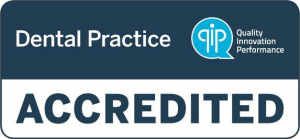
Is It Plaque, or Is It Tartar?
You will often hear the terms plaque and tartar used interchangeably, so it is easy to think they are the same. While similar, there are some important differences, and understanding these can help you manage your oral health more effectively.
Everyone has dental plaque and, to some extent, tartar because everyone needs to eat! When you chew food, it is mixed with saliva, which helps the food to break down so your body can absorb the nutrition more easily. However, your mouth is host to over 500 different species of bacteria that also like to eat, and these feast off the leftovers whenever you have a meal.
Eating Produces Plaque
These bacteria are found in dental plaque, a sticky biofilm continually forming on your teeth day and night. The bacteria, saliva and food particles all combine to form dental plaque, and if it has been a while since you brushed your teeth, you can even feel this film by running your tongue over them.
The bacteria in dental plaque also produce toxins and acids that attack your tooth enamel, and gums. These are the same bacteria that can cause cavities and gum disease if their growth remains unchecked. The main reason why it’s important to brush and floss your teeth regularly is to get rid of dental plaque and interrupt bacterial growth. When you don’t brush and floss your teeth thoroughly, any plaque that remains on your teeth soon hardens into tartar.
What Happens When Tartar Develops Over Teeth?
If plaque remains on your teeth, it begins to harden into tartar between one and three days afterwards. Tartar, also called calculus, is a hard substance that strongly bonds to your tooth enamel. It is a crusty substance that can easily become stained, so you may notice a yellow or brown buildup around your gum margins, where your teeth meet your gums.
You cannot remove tartar or calculus by brushing or flossing your teeth, as it must be removed professionally during your dental cleanings when you visit our practice. Unfortunately, so long as tartar remains on your teeth, the bacteria within it continue to produce toxins and acids that infect and inflame your gums.
The risk of developing calculus is greater if you smoke or have a dry mouth, where you cannot produce enough saliva. Even people who clean their teeth thoroughly will have some tartar on them, which is why dental cleanings are such an important part of your preventative dental care plan.
Fighting Plaque and Tartar Buildup
The easiest way to prevent excessive plaque and tartar buildup is to ensure you have an excellent oral care routine. When you brush your teeth, pay attention to cleaning each tooth surface thoroughly to remove plaque buildup. Regular daily flossing removes plaque buildup and the food debris that feed harmful bacteria trapped between your teeth. When you visit our dental practice, we can clean your teeth professionally and offer advice on how to brush and floss effectively.










0